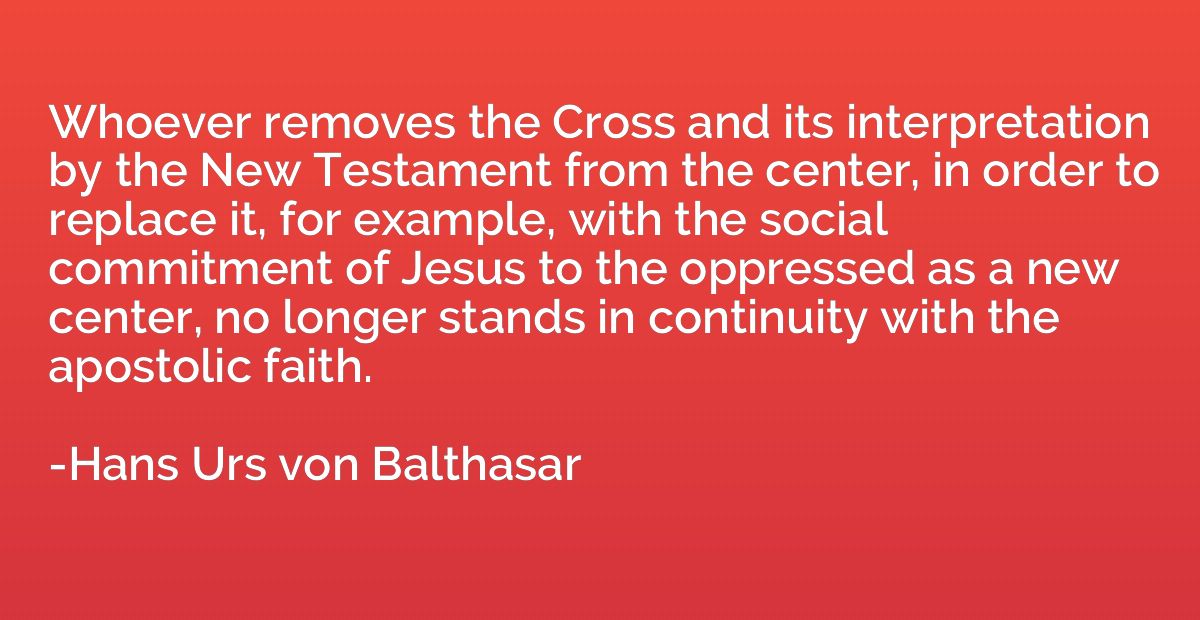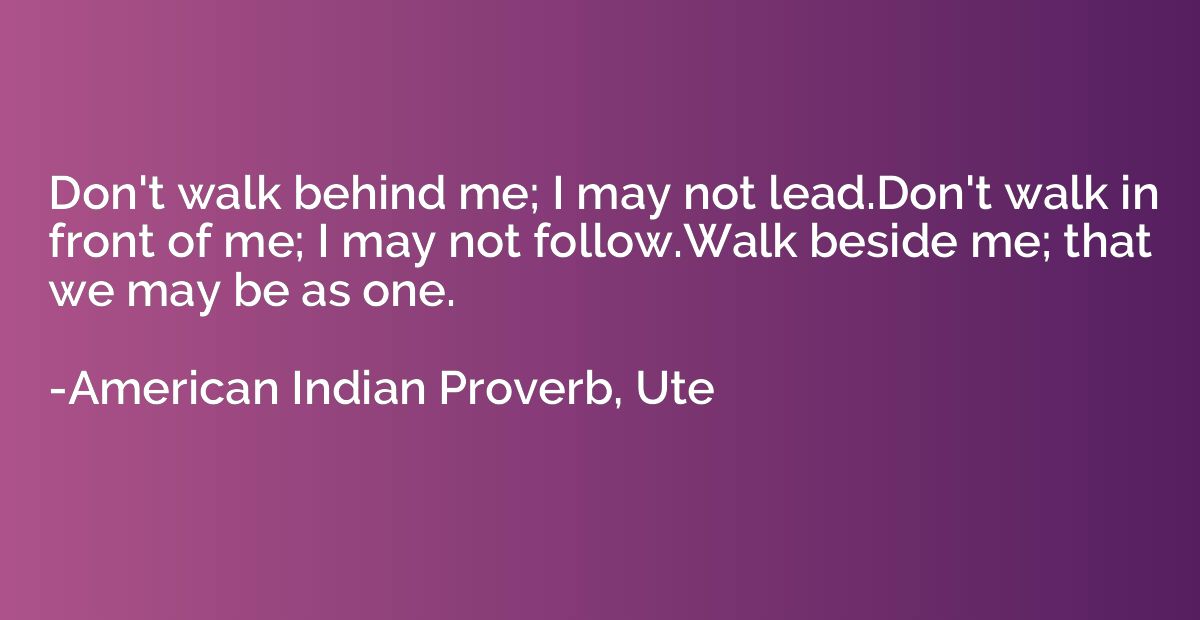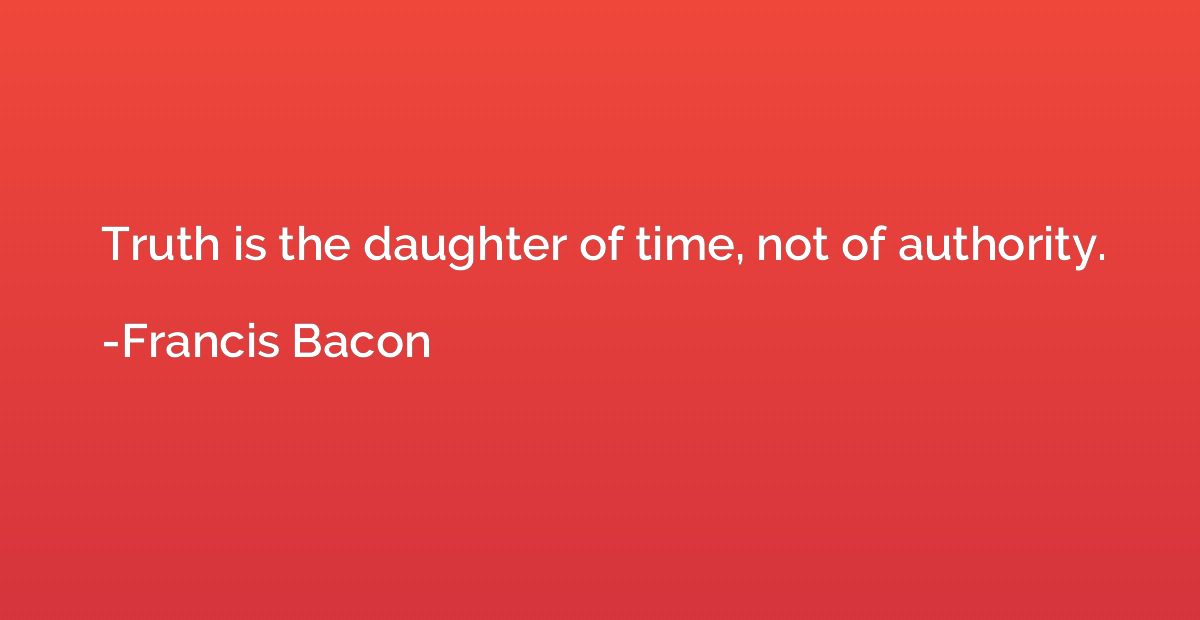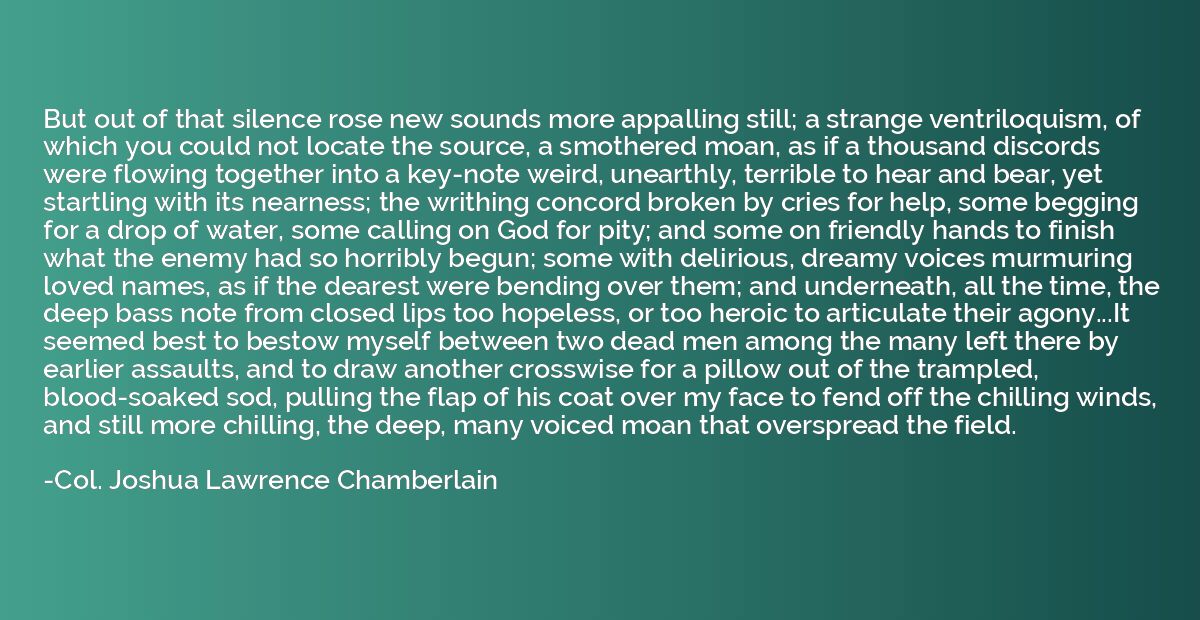Quote by Hans Urs von Balthasar
Whoever removes the Cross and its interpretation by the New Testament from the center, in order to replace it, for example, with the social commitment of Jesus to the oppressed as a new center, no longer stands in continuity with the apostolic faith.

Summary
This quote suggests that if someone tries to push the significance of the Cross and its interpretation in the New Testament aside, while promoting a new center such as Jesus' social commitment to the oppressed, they break away from the continuity of the original apostolic faith. In other words, the quote argues that removing the central focus on the Cross and replacing it with other aspects of Jesus' teachings undermines the fundamental beliefs of Christianity.














